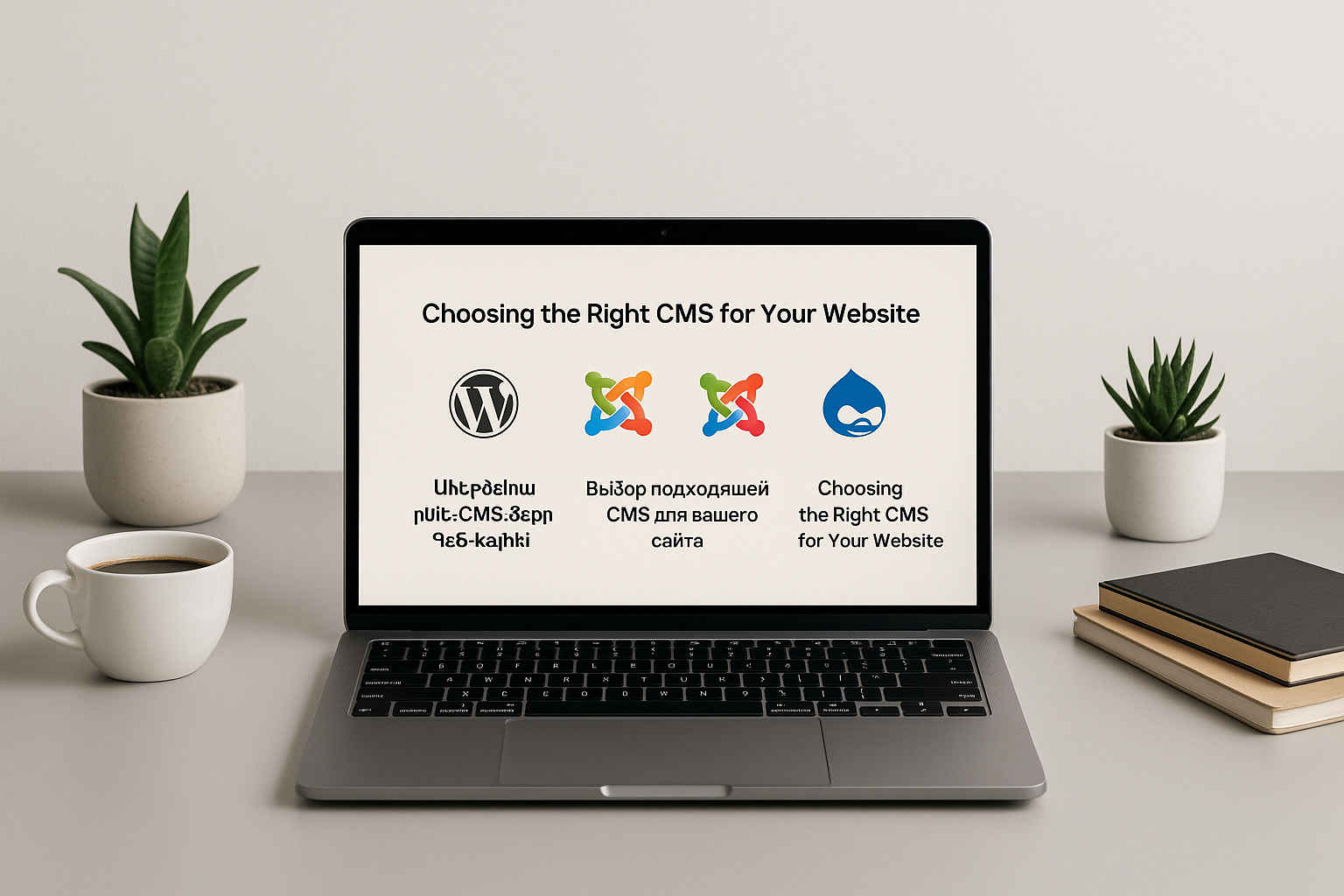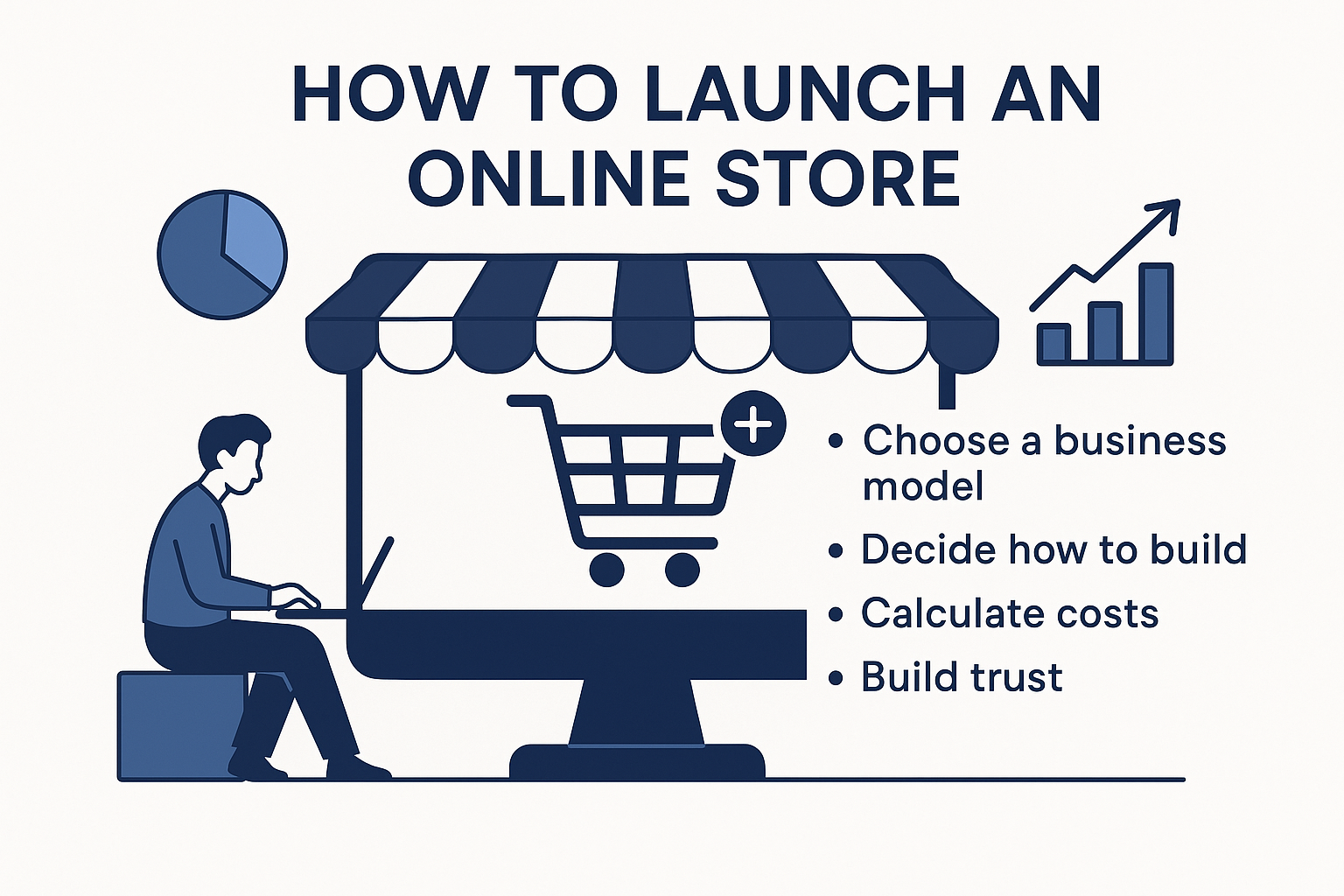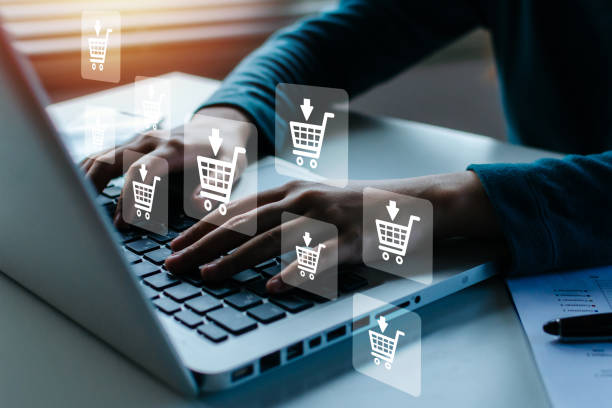Blog
Current news

When creating a website, choosing a CMS is the first important step. Some clients rely on the opinions of others, some look for cheapness, and some trust the advice of developers. But in most cases, this leads to the wrong choice of platform, which can further affect the efficiency of work.
In this article, we will consider the main controversial points related to the choice of CMS.
Which is better: to create a website from scratch or use ready-made templates, such as WordPress?
Is WordPress a full-fledged CMS or is it just a template system?
Is it possible to save money by choosing a ready-made CMS template?
What are the disadvantages of using free ready-made templates?
Which CMS to choose?
Many web developers, who have heard nothing but WordPress, convince their clients that this is the best and easiest choice. But this can confuse the client.
At Astudio, we prefer to develop websites from scratch, fully adapted to business needs. While such development may be more expensive, it often provides much more benefits in the long run, avoiding the limitations of ready-made templates.
In the CIS countries, the statistics are as follows:
45% of sites are built on WordPress
25% use Joomla
About 10% use Drupal
Each of these CMS can be useful for creating a simple resource, but there are important points to consider when using WordPress.
WordPress is the most popular content management system
Initially intended for blogging
Created for news sites and blogs
The system offers many plugins for quick website creation
This version preserves the same general structure and topics while offering unique content and framing. Would you like to make any adjustments or add more specific points?

Opening an online store can seem like a daunting task, but with the right planning and approach, it can be one of the most rewarding business decisions you’ll ever make. From choosing the right business model to handling tax issues and customer trust, this article will walk you through the essential steps to create your own online store.
1. Choosing the Right Business Model for Your Online Store
Before diving into the development of your online store, it’s crucial to decide on your business model. Here are the most common models:
-
Selling Your Own Products: This is the simplest model where you sell products you manufacture or source yourself. You may already have a physical store and want to expand into e-commerce to increase sales and reach more customers.
-
Dropshipping: This model involves selling products from suppliers who handle the inventory and shipping. You don’t hold stock yourself, and you make money by marking up the product price.
-
Marketplace: A marketplace lets different sellers showcase their products on your platform. You act as an intermediary, providing the infrastructure and tools for sellers to run their shops while handling payments and customer service.
2. Where to Start: Your Options for Building an Online Store
Once you've decided on your business model, you need to choose how to build your store. Here are three main options:
-
Ready-Made Templates: Buying a template is the most affordable option, but it limits your flexibility. It’s suitable for small stores, but templates may pose security risks and limit functionality.
-
Renting a Store: You can rent an online store platform to start your business without long-term commitments. It's a good option for testing your business idea before investing heavily.
-
Building from Scratch: This is the most expensive but also the most customizable option. By creating your store from the ground up, you have complete control over its functionality, design, and scalability. If you're serious about your business, this is the way to go.
3. Costs Involved in Developing an Online Store
Planning your budget is essential. Development costs can vary greatly depending on your approach. Here are the main categories of expenses:
-
Design and Development: Custom websites from scratch will incur higher initial costs, but they offer long-term benefits like scalability and security.
-
Marketing and Promotion: To attract customers to your site, you’ll need to budget for SEO, social media marketing, and paid advertising.
-
Ongoing Maintenance: Regular updates, security patches, and improvements will incur ongoing costs.
-
Platform Fees: If you’re using a third-party platform, there will likely be monthly or transaction fees.
It's important to budget wisely and always prepare for additional costs. The cost of launching an online store can vary, but it's important not to cut corners on key aspects like security and user experience.
4. Ensuring Trust and Building Reputation
Trust is a critical factor for online shoppers. To build credibility and trust, consider the following:
-
SSL Certificates: Ensure your site is secure by using an SSL certificate. This protects your customers' data and helps improve your search engine ranking.
-
Customer Reviews: Allow customers to leave feedback. Positive reviews increase trust and help potential buyers make decisions.
-
Professional Design: A sleek, user-friendly design will make customers feel more comfortable navigating your site.
5. Tax Issues and Legal Considerations
Before launching your online store, make sure you address tax and legal matters:
-
Register Your Business: Ensure your business is legally registered and complies with local laws.
-
Sales Tax: Understand how sales tax applies to your online store, depending on where your customers are located.
-
Privacy Policies: You must have clear privacy policies and terms of service, especially if you handle sensitive customer data.

Our company is a dynamic and innovative software development company specializing in the development of programs, web solutions and mobile applications. Over the years, we have established ourselves as a leader in the field of high technology, providing services to businesses around the world. Our team consists of passionate developers, designers and project managers who strive to push the boundaries of technology.
H2: Appearance on leading TV channels
Recently, we had the opportunity to be invited to several leading TV channels, such as [TV Channel 1] and [TV Channel 2], for interviews. This gave us a chance to discuss the impact of new technologies, the importance of innovation in our industry and the future of programming. Our company's vision for the future includes creating smart and effective solutions that will change the approach to doing business.
We are proud to have been able to share our thoughts in interviews conducted in Armenian, Russian and English. These discussions helped shed light on our work, the challenges we face, and the strategies we use to stay ahead in the rapidly changing world of technology. Our ability to adapt to new trends and solve complex problems has made us leaders in the programming space.

In today’s digital world, ChatGPT is the tool that helps solve a variety of tasks, from technical queries to creative brainstorming. ChatGPT leverages cutting-edge language models and deep learning technologies to provide fast and efficient solutions.
ChatGPT offers:
-
Clear explanations of complex technical questions
-
Language support in Armenian, Russian, English, and many more
-
Code writing, revision suggestions, and error detection
-
Creative thinking for blog posts, stories, and messages
-
Real-time news searching and information retrieval
Every time you use ChatGPT, you’re getting faster, better answers powered by the latest global trends and advanced technologies.

Today, most purchases begin online — even if they end in a physical store. That’s why an online shop is no longer just a website, but the frontline of your business’s sales.
A well-designed online store offers:
-
Easy navigation and product search
-
Fast loading speed and user-friendly interface
-
Secure payment processing
-
A mobile-friendly version
When customers can easily find what they need, trust the checkout process, and receive their order quickly — they’re likely to come back.

